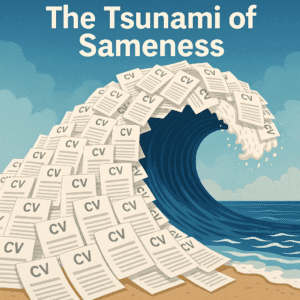If current patterns continue, today’s students will spend an astonishing 25 years of their lives staring at smartphones.
That’s the stark warning from new research by Fluid Focus, reported this week in The Times, to which I was proud to contribute. The study, which analysed the phone habits of more than 2,800 secondary, FE, and university students, found the average screen time to be over five hours a day — rising to more than six hours for university students. For some, usage exceeded nine hours a day.
As I noted in The Times,
“What’s powerful is how students feel that it’s damaging their academic performance. That awareness — that ‘I could do so much better if I managed this’ — is telling.”
But it’s not just academic performance at risk. Sleep, relationships, focus, and mental health are also being affected. At university level, 66% of students report sleep disruption due to late-night phone use. Nearly 70% believe their phone is harming their studies. And yet, most feel unable to control it.
We’re raising a generation that’s hyper-connected… but focus-deprived.
For the past year, I’ve been speaking about attention and digital distraction to audiences across the world. After every talk, someone will say they thought it was just them who couldn’t finish a book, watch a film, or sit through a meal without checking their phone.
As I recently wrote:
“We’ve normalised digital dependency during the most formative years of our lives — often without a plan for its consequences.”
The challenge isn’t ignorance. It’s inertia. We’ve built learning environments and workplaces where distraction is embedded — and increasingly hard to avoid.
(No wonder I’m still ploughing through Middlemarch.)
And as we enter the AI age — where deep focus, emotional intelligence, and creativity are more valuable than ever — it’s time to rethink our relationship with tech.
That’s why the Fluid Focus study is so vital. It doesn’t just sound the alarm — it offers solutions. From elastic bands on phones to 30-minute lectures, from curriculum reform to a call for a public health campaign on digital wellbeing, the message is clear:
This is everyone’s problem. And it’s time we tackled it together.
I’ll be discussing this live on radio in the UK and Ireland this week — further proof, if it were needed, that attention has become one of the defining issues of our time.
Time to start paying attention… to attention.
#AttentionEconomy #DigitalWellbeing #GenZ #Education #FutureOfWork #ScreenTime #AI #StudentExperience #Leadership #FocusMatters #PublicHealth #LinkedInBlog
With thanks to @Glenn Stephenson & @Connor Mason of Fluid Focus for their leadership on this vital issue.







